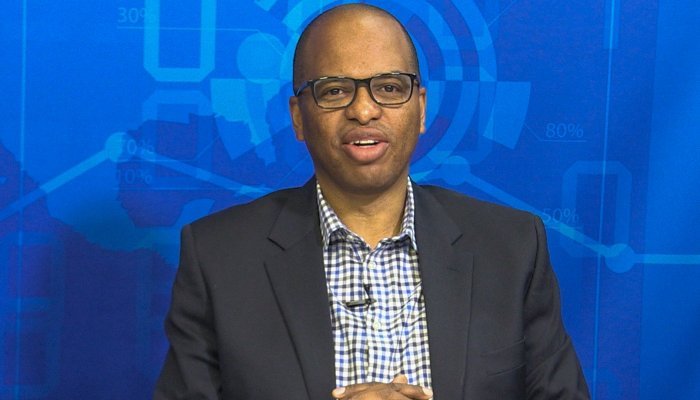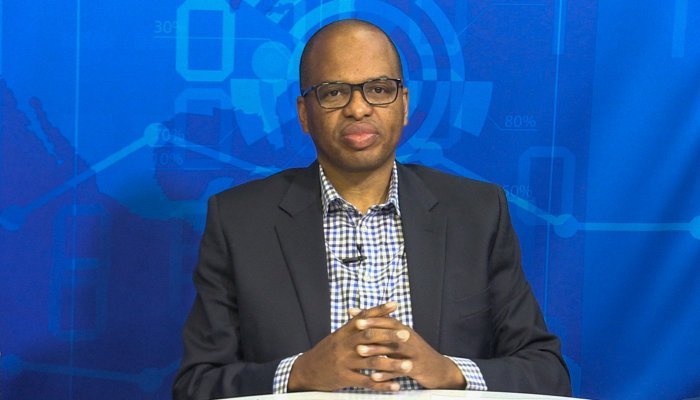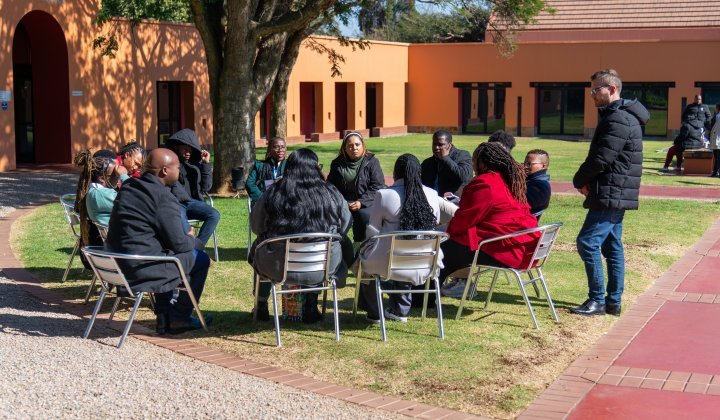Capitec Bank’s rise in the South African banking landscape reads like a fairy tale. Established in 2001, the bank has solidified its position in the local financial services industry. In the year up to February 2020, its client base stood at 13.9 million, according to the company’s annual report. That number has since surpassed the 14 million mark as the bank continues to acquire new customers. As the fairy tale has unfolded over the years, Capitec’s market capitalisation has also surpassed that of Nedbank. In a conversation with GIBS Business School interim Dean, Dr. Morris Mthombeni, as part of the Online CEO Conversations Series, Capital CEO Gerrie Fourie discussed some of the bank’s strategies, its future plans, and operations amid the Covid-19 pandemic.
The Capitec way has mainly been about enhancing the customer’s experience.
Solid foundations keep the house steady
When the idea of Capitec Bank was still a mere concept, Fourie says its founders were modest in their ambitions. They were initially looking to sign up two million customers. But the bank, which originated in Stellenbosch, has far surpassed its own expectations.
Capitec’s success in such a relatively short space of time (in banking years, anyway) has been nothing short of phenomenal. Fourie says the secret is that the founders had a solid vision and business plan that still influences operations to this day. The Capitec way has mainly been about enhancing the customer’s experience. The founding principles have been, and continue to be, about providing the very best personal service, and keeping things simple, affordable and accessible.
Fourie, who was named the 2019 Business Leader of the Year at the Sunday Times Top 100 Companies Awards, firmly believes that the people who interface with clients daily need to thoroughly understand Capitec’s overall strategy. So, as part of its induction programme, the bank flies down new recruits to its headquarters to initiate them on its culture, values and goals.
Fourie has been with Capitec since before it opened its doors 19 years ago. He took over as CEO from Riaan Stassen in 2014. Since then, the bank has grown from being the sixth-largest bank in the country to have the most clients. It is now also the largest digital bank locally, with at least seven million active customers.
With the emergence of new digital banks such as Discovery, Thyme, and possibly Telkom, Capitec will soon be operating in a more saturated market. But Fourie and his team are banking on some of the experience gained from operating in the financial services industry for nearly 20 years. “If you look at our products, everyone gets treated the same. You do not get a different coloured card, depending on your income. Our pricing is very simple and transparent,” he explains.
Team Capitec is also confident that its one-size-fits-all approach will continue to hold them in good stead. Its proverbial ace up the sleeve is the branch experience offering, which Fourie says is one of the key requirements to successfully operating a bank in South Africa. Capitec has about 850 branches nationwide, servicing their six million customers who prefer face-to-face interactions.
... the bank has had to minimise risk by cutting down credit approvals....
Expanding operations and offering more
Over the years, Capitec has pursued a robust expansion drive. It recently acquired Mercantile Bank, mainly attracted by its secured lending book. The bank wants to dominate the SME market, so this acquisition is a move towards achieving that goal.
Over the years, Capitec clients have called for more product offerings. In response, the bank partnered with SA Homeloans in a joint venture that Fourie describes as a learning experience. Capitec is using the lessons learnt from the three-year partnership to improve its homeloans offering.
Will Capitec be expanding its services to the rest of the continent? Not anytime soon, says Fourie. “There is a local SME market that we need to focus on. We need to ensure that we fully understand it and be successful in South Africa first before going elsewhere.” For now, the bank’s only foray into the international wilderness is through a small online lending business it acquired in Poland. Capitec’s R300 million investment in the Polish lender gives it access to several countries.
The bank’s diversification drive has also seen it enter the competitive funeral policy space. Its joint venture with Sanlam has issued over a million funeral policies to date and yielded R413 million in net income in the last financial year.
Lessons from the Viceroy saga
In January 2018, a short-selling firm known as Viceroy released a report, accusing Capitec of reckless lending. This sent shares down as much as 25%, and there were questions over whether the banking group was following in the footsteps of African Bank, which had collapsed some years before, due to reckless lending practices.
Faced with a crisis and under pressure, the team had to act quickly to quell the growing concerns. Fourie called an urgent meeting of the banking group’s top brass, and together they went through the 40-page report. By lunchtime that day, they had formulated a response.
Now in retrospect, Fourie says the Viceroy episode taught them the value of constant and continued communication and facing the crisis head-on. “When this sort of thing happens, your integrity is questioned,” he laments.
The ‘new normal’
The outbreak of the coronavirus and the subsequent national lockdown in South Africa has forced Capitec to find creative ways to continue operating. Call centre operations have moved to the homes of the team members. Branch interactions continue, but the banking group has noted an increase in digital operations and e-commerce, a phenomenon Fourie believes is the future of banking in South Africa and which will “pave the way for the future and possibly change the world of work". He’s already plotting a strategy on how to capitalise on this growing trend. The appetite for Capitec’s services has not abated, and the bank is still securing new customers.
With the uncertainty around the global pandemic, however, the bank has had to minimise risk by cutting down credit approvals. It has also since allocated over R11 billion in payment breaks. But, in true Capitec fashion, there has been some element of risk in its operations, with the launch of a new access facility in April and its foray into unsecured vehicle financing through a partnership with WeBuyCars.
What happens next?
Fourie believes allocating resources to education is important; not just standard classroom teaching and learning, but school management and teacher skills upgrading as well. Two years ago, the bank partnered with the University of Cape Town to train principals on how to manage schools.
As South Africa looks at economic recovery beyond the pandemic, Fourie’s views on what needs to happen to grow the local economy and create jobs are clear: “Bring the banking sector into the informal market to grow the segment.”
He also wants to see the government executing the economic recovery plans it has formulated. “I think there’s generally too much talk in government, and no execution. The private sector and the government need to focus on the same objective, creating jobs and growing the economy,” he says.
KEY TAKEAWAYS
- Never go into business without a solid plan.
- The SMME sector needs to grow if South Africa is to create jobs and grow its economy.
- In the digital age, computers will never completely replace humans. The trick is to find innovative ways to use technology to enhance customer experiences.
Further reading:
https://www.capitecbank.co.za/investor-relations/financial-results/2020/








